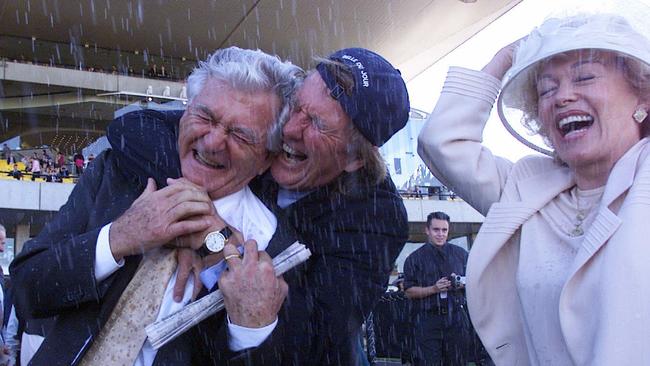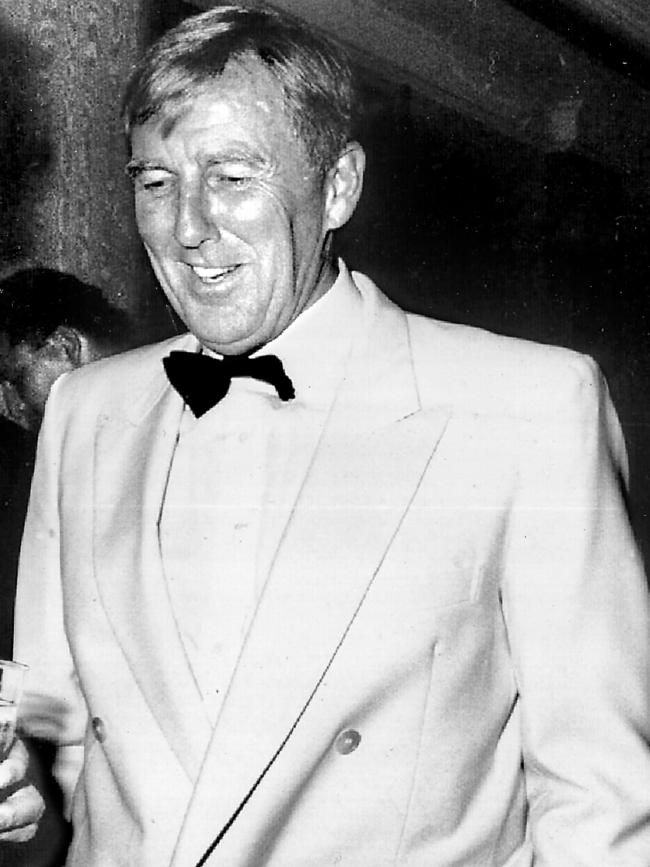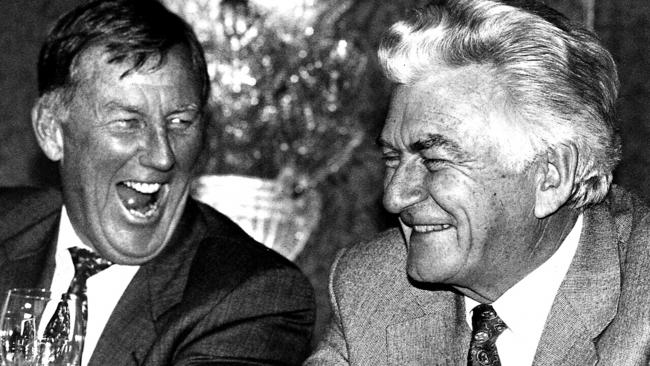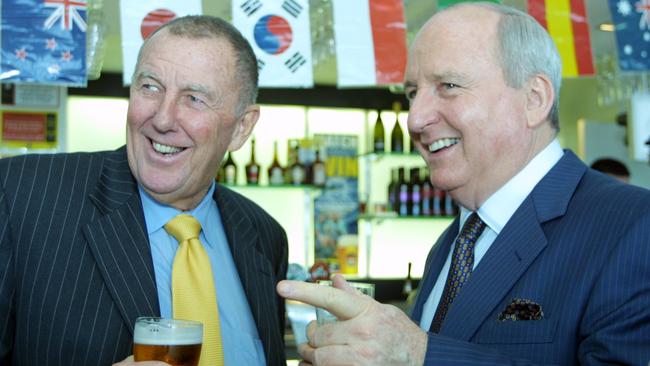John Singleton reflects on a wild six decades in adland
Wild parties, brave business decisions and creative brilliance define the career of John Singleton.

Media is almost the furthest thing from John Singleton’s mind while he sits at home on a grey, rainy afternoon, his canary singing in the background.
“Normally Yorkshire canaries … they whistle five or six times a day,” he says.
“It's a pity he’s such a tiny bird, he’d be a champion. He'd probably be worth a couple of thousand if he was bigger.
MORE: Singleton sells out of radio | Brands ‘weak’ for pulling ads over Alan Jones
“As someone who grew up with homing pigeons, racing pigeons, breeding pigeons and canaries … to have the Australian champion in Yorkshire, that’d be good. It's just as important to me.”
The adland veteran known for creating the “ocker’’ voice in advertising has finally agreed to sell his 32 per cent stake in Macquarie Media to Nine Entertainment and, while he may be $80m richer in a matter of months, Singo is already content.
“I’m pretty happy with the birds and horses,” he says.
The 77-year-old doesn’t believe in legacies but, like anyone with a career spanning more than six decades, there are parts he regrets — among them selling Lonely Planet to the BBC, selling his stake in an Indonesian television station and not obtaining the rights to sell SBS advertising.

His failure to get a cadetship in journalism, which marked the beginning of a long career in advertising, is not one of them.
“I wanted to write. It was the only thing I could do with any skill,” he says.
“But then I read this book on advertising and back then the appeal of advertising was you actually got to write plays … I thought, ‘how cool is that, writing plays’.”
Singo’s entrance into the advertising world through J. Walter Thompson, now Wunderman Thompson, is well-known.
As he wrote in his book True Confessions, time off work due to a broken shoulder meant he did not get fired like fellow cadets who had tried to lighten their duties by burning the mail they were supposed to deliver.
But it was the opportunity Singleton saw in television that launched his career.
When the agency needed someone to help with a film projector, Singleton put his hand up.
“Within a matter of weeks, I was the TV department,” he says.
“If you wanted something at J. Walter Thompson … this John Singleton was the TV department.
Singleton did not spend many years at J. Walter Thompson, moving agencies many times in a short period. But then Bill Currie, head of advertising agency Berrie Currie, took a chance and hired him as copy chief.
In Gerald Stone’s biography, Singo, Currie said: “He was virtually unemployable because he was too fiery. He’d been sacked from too many places.”
And yet he was hired.
“In my opinion he’s one of the brightest blokes in Australia,” Mr Currie told The Australian.
“I’ve been to a lot of agencies in America and met a lot of chief executives … you’d talk to them and talk to him and realise that he is world-class in the thinking area. He leaves a lot of the so-called stars in the other parts of the world … for dead.”
By the age of 25, Singleton had started his own agency, one of the first creatives to do so. The agency, known as SPASM, was TV-driven and had a number of basic rules, including no lunch breaks and no drinking before 5pm. Parties took place every Friday. Singleton attributes the success of the agency to its talented staff.
“The guys of that era — advertising wasn't in their ambition, it was a stepping stone,” he says.
“For me it was the end game. I had a love of it and an ambition for it that no one else shared.
“I was constantly frustrated that no one would give it the love and care and attention it needed. I could see it changing industries.”
The SPASM parties attracted the likes of Kerry Packer, Sam Chisholm, NSW premier Robert Askin, Jack Cowin and long-time friend Gerry Harvey.
In 1973, SPASM was sold to Doyle, Dane and Bernbach but Singleton remained as managing director, before leaving in 1977.
The years which followed Singleton’s first departure from advertising were also met with new media opportunities.
In 1979, Singleton began a late-night program on the Ten Network, which was pulled off the air due to an assault case in Adelaide.
“I loved the Saturday night show I had on TV. Everyone was drinking and we had singers — it was a different era. There was no research, no brief, not autocue. It started at 8.30 and finished when I felt like it, or when I had enough to drink. Off-field indiscretions brought an end to that,” he says.
Not long after, Singleton began presenting 2KY’s morning show, nicknamed “mumbleback radio’’. The ratings, advertising revenues and reviews boosted his public profile.
By 1985, Singleton decided to return to advertising with the creation of John Singleton Advertising and attracted his former clients back to his business.

His campaign for Labor in 1987 helped re-elect the Bob Hawke-led government.
One former colleague said the business’s success came from its distinct brand position and making the agency about the business of advertising rather than an advertising business.
In a bid to gain international clients, he acquired Ogilvy and Mather and later bought 49 per cent of J. Walter Thompson.
There were plans, according to Singleton, to merge WPP with Singleton Group, but then WPP boss Martin Sorrell pulled out.
“Martin Sorrell dudded me,’’ he says.
The 1990s were a busy decade. After helping buy Ten out of receivership the first time, Singleton briefly held a seat on the board of John Fairfax Holdings before his interest in the broadcaster put him in breach of ownership laws.
By 1994 he had floated John Singleton Advertising on the stock exchange.
In the years that followed, he bought Jim Hart’s 30 per cent share in Lonely Planet Publications and acquired 2CH and 2GB, which formed the basis of what is now Macquarie Media.
“Reverend Gordon Moyes (chairman of the Uniting Church-owned Harbour Radio) got himself in a bit of a financial mess and he knew I wanted 2GB and he rang me,’’ Singleton says.
“He had to sell it that day. He didn’t care about the price as long as it was the front page of the Herald that day selling to me.
“That became a licence to lose money because Laws and Jones and Hadley were on 2UE. I couldn’t get anywhere. So the more money I spent on talent to beat these bastards, the more money I was losing, plus no revenue.
“I had to wait and wait until finally their contracts were up. Ray robbed me first and Alan Jones took what was left.
“Laws went and used the offer to get himself a better deal at 2UE.”

In 2000 he acquired personal stakes in Indonesia’s No 3 Network SCTV (Surya Citra Television), a network he regrets selling. By 2002, STW was formed and became Australia’s largest communications group. By 2016, STW had merged with global advertising giant WPP.
“The catalyst (for selling shares) was Sorrell not keeping his word and also the dreaded 20 years,” he says. “By then I had diversified as well because I’d made more money out of advertising than other people, because I didn’t work like them.”
Singleton says he has achieved more than he ever thought he would. He has the rights to ABC drama Les Norton but, once the Macquarie deal is done, Singleton will have no major investments in media.
Associates who have worked with him for years are confident this is the end of his media mogul days.
“He’s in old man mode now,” says one associate.
For Singleton, remembering his career can be hard.
“Unfortunately at every stage of my career — every five years — I’ve got everything, master tapes, commercials, TV shows, photographs, and burned them to force myself to move on. I see too many people live in the past,” he says.
And if someone ever asked him if they should invest in the media and marketing industry today?
“I’d tell them they aren’t going to have as much fun as I did,” he laughs.



To join the conversation, please log in. Don't have an account? Register
Join the conversation, you are commenting as Logout